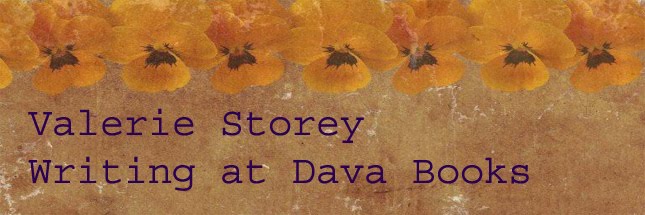
Baby Bear wanted to keep her.
“Papa,” I said, “we’ve spoiled that child. He’s had the comfiest chair, the smoothest porridge, the best bed. But I draw the line at blond girls who don’t know better than to break into a stranger’s house and mess up my housekeeping. He can’t have everything his heart desires, you know.”
Baby wouldn’t take “no” for an answer. Instead, he threw one royal fit. He was growing up and I didn’t like the look in his eyes or the way he flashed his claws--reckless and sharp as razors. He was always leaving huge marks on the door frames we’d just had varnished not two months ago.
“No,” I said, dodging those claws. “You cannot keep her.”
Goldilocks pretended to be asleep. But she couldn’t fool me. I’d seen her kind before: cunning behind those Shirley Temple curls, those dimples, those shiny Mary Janes. I knew what a girl like that could do with her “Yes, ma’ams” and “No, ma’ams.” She wasn’t coming to live with us, no thank you.
Papa Bear ignored the whole thing. Instead, he left in a huff and went back to the woods. After that, it was just me and the girl and Baby, except he wasn’t a baby anymore. Frankly, I was afraid of him. I was almost ready to give him the girl and be done with it. Then I thought of what it might be like making porridge and feather beds for the two of them and what about down the road? Who could say they’d stop at two? “No,” I said. “You cannot keep her.”
It was no good. She stayed anyway and it was just like I thought. My porridge was always cold from rushing around waiting on those two lugs and making sure everything was “just right” for Little Miss.
Things went from bad to worse. That fancy pinafore was just one long streak of mud before those long curls became as tangled as a bird’s nest. I felt sorry for her then, what with Baby Bear tormenting her day and night, bringing her centipedes and crawfish, farting and burping and pulling her hair. She was just pitiful in the end. When he got bored with her, he threw her to me while he went out to join his father.
I tried to clean her up but I was too clumsy. “Run away, little girl,” I crooned into her mossy ear. “Run away or I’ll blow your house down.”
“That’s the wrong story,” she said.
“Well, if you’re so smart, sing your own damn song.” She grabbed the brush and turned her back on me. I wanted to spit, but all I said was, “Look here, missy. You just stay out of my way and we’ll get on fine.”
A half hour later I saw her out there in the yard eating those centipedes and crawdads. The look on her face was terrible. I could tell she hated every bite but I also knew there was something she was trying to feed. Those cubs were taking their toll on her, but there was nothing I could do.
By the time the cubs were born I knew she wasn’t right in the head anymore. “Don’t you even want to name them?”
“You can call them Hansel and Gretel for all I care.”
I looked down at Hansel and Gretel. Talk about the wrong story. Gretel was as gold and wooly as a little lamb. Hansel looked good enough to eat. They sure were cute, more’s the pity when I knew what I had to do--sell ‘em and recoup my housekeeping expenses. That Bo Peep was always crying about how she’d lost her sheep, and everyone knew the Beast’s wife lived to take on lost causes. Nobody would blame me for doing a good deed. Before I could think too much about it, I bundled the cubs in blankets from Baby Bear’s own bed then carried them into town.
I took the first offer I got--a handful of beans from a woman leading a brindle cow. It wasn’t much, but the way I saw it, at least with a cow the cubs would never go hungry. I didn’t want to tell Papa about what might not be seen as the world’s best deal, so when I got home I just threw the beans out the window. Looking back, I think providence was guiding my paw.
As soon as the first stalk appeared, Little Goldie was off in a flash. I never saw a creature climb with the speed of that child. Maybe whoever’s up there will have better luck getting her tidied up and talking sense. Anything’s better than what she got here.
It’s been three weeks while I sit in the shade of my vines, everyone gone. I’ve taken the best bed for myself and my porridge always turns out perfect. Baby and Papa are off somewhere in the woods. It’s no concern of mine; they can drink swamp water for all I care. Sometimes I can almost believe there really is a place called Happily Ever After.
Tip of the Day: It’s fun to play with fairy tales, turning them upside down and inside out. Try taking one of your favorites and rewriting it to a different beat. Happy Holidays!
 Last post of the year and I want to thank everyone who has visited my blog and web site, added comments, and taken the time to buy and read my books. Thank you so much! I appreciate each and every one of you.
Last post of the year and I want to thank everyone who has visited my blog and web site, added comments, and taken the time to buy and read my books. Thank you so much! I appreciate each and every one of you.


